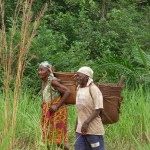Writing for the Financial Times the talented Iranian journalist, Najmeh Bozorgmehr, reports on how US-imposed sanctions on Iran’s Central Bank are preventing critically-ill patients from getting crucial medical aid:
The government of Mahmoud Ahmadinejad says international sanctions have had little impact on the country and insists that its nuclear program [...]]]>
Writing for the Financial Times the talented Iranian journalist, Najmeh Bozorgmehr, reports on how US-imposed sanctions on Iran’s Central Bank are preventing critically-ill patients from getting crucial medical aid:
The government of Mahmoud Ahmadinejad says international sanctions have had little impact on the country and insists that its nuclear program should continue. It has launched a public relations campaign stressing that 97 percent of Iran’s medicine is produced domestically — a clear attempt to prevent panic that medical supplies could be at risk.
However, Ahmad Ghavidel, head of the Iranian Hemophilia Society, a nongovernmental organization that assists about 8,000 patients, says access to medicine has become increasingly limited and claims one young man recently died in southern Iran after an accident when the blood-clotting injection he needed was not available.
“This is a blatant hostage-taking of the most vulnerable people by countries which claim they care about human rights,” Ghavidel said. “Even a few days of delay can have serious consequences like hemorrhage and disability.”
In July Iran scholar Farideh Farhi informed us about an important report by the International Civil Society Action Network (ICAN) that details the negative impact of sanctions on ordinary Iranians. Farhi’s article provides useful context and analysis for Bozorgmehr’s piece. She writes:
]]>If ICAN’s analysis is accurate, it also foretells harsher economic realities for the most vulnerable elements of Iran’s population, a harsher political environment for those agitating for change, and a more hostile setting for those who have tried to maintain historical links between Western societies and Iranian society.
Sanctions impact calculations, but usually not in the intended fashion.
“It smells strongly of wine gone vinegary but it works ,” he says.
Last year, [...]]]>
“It smells strongly of wine gone vinegary but it works ,” he says.

The forest is their pharmacy. Photo: M. Sayagues
Last year, when he was scratching madly with chickenpox, his granny’s ointment of coconut oil and leaves relieved the itchiness.
When his friend Geane Castro feels a cold coming, his grandmother makes him a hot bath with water infused with leaves and bark, then a special tea with plants she gathers in the forest. Presto, he recovers.
I meet them at Teia D’Arte, an art gallery in Sao Tome, the capital of the tiny two-island nation of Sao Tome and Principe, off the coast of Gabon.
With a rich biodiversity of 600 botanical species and 132 endemic plants, the islands’ rainforest is a well-stocked pharmacy for herbalists.
Their knowledge is captured in a decade-long ethno-pharmacological study published last year. Researchers worked with 40 traditional healers, midwives and grandmothers to identify and classify 325 medicinal plants, note 1,000 recipes and test 25 plants in the lab. Many look promising for developing new medicines.
Generations of expertise
Across Africa, healers hold an impressive knowledge of medicinal plants, accumulated through generations and transmitted through years of apprenticeship.
The new generation of healers blends tradition with modernity. They throw the bones, brew herbal medicines, book patients by cellphone and negotiate the complexities of modern life. They follow tradition and break away from it.
Nkunzi Zandile Nkabinde is a young Zulu sangoma – the word for traditional healer in South Africa.  She works in Soweto, married her partner in June, and wrote a book about her life in an homophobic society: Black Bull, Ancestors and Me: My Life as a Lesbian Sangoma.
She works in Soweto, married her partner in June, and wrote a book about her life in an homophobic society: Black Bull, Ancestors and Me: My Life as a Lesbian Sangoma.
Today, 31 August, is the African Traditional Medicine Day, established in 2001 by the World Health Organisation.
Repressed by colonial authorities, condemned as witchcraft by churches, spurned by post-colonial Marxist governments, African traditional medicine is regaining prestige.
The WHO describes it as “heritage, knowledge and healing that is affordable, accessible, and culturally acceptable”.
For a majority of Africans, especially rural, traditional medicine is the main professional health care, sometimes the only one available,or the cheapest and closest. In the cities, many people will consult both a bio-medical doctor and a traditional healer.
In Africa, to cure is to restore human vitality and harmony with the universe. Body and soul are not separate entities; they are linked to nature, spirits and other people.
The timeless wisdom of healers is an essential part of African health. “It would be sad to lose this knowledge,” says Sousa.
]]>